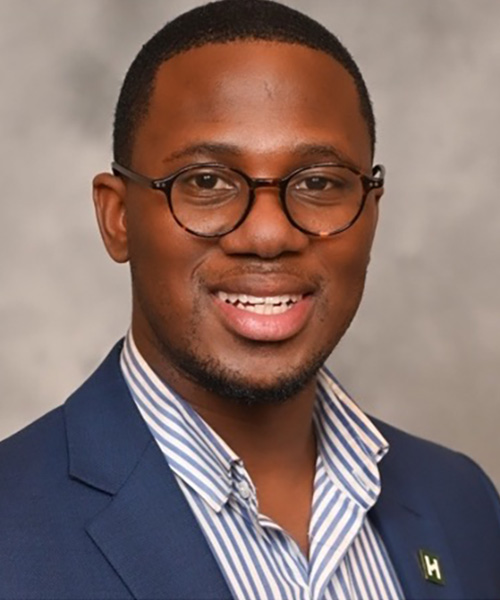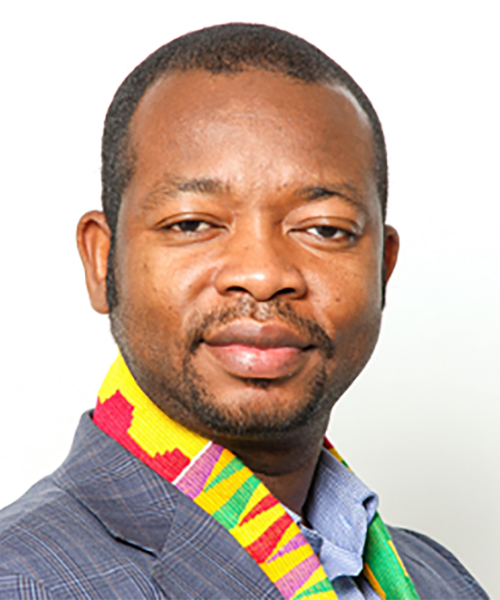
Digital Sovereignty in Postcolonial Africa: The Spread of Chinese Surveillance Tools and the Leasing of African Sovereignty
Bulelani Jili | October 20, 2025
Responding To: Reflections on Chinese Digital Technologies in Africa
Ibrahima Niang
In twenty years since Senegal and China resumed their diplomatic relations in October 2005, the Chinese ICT Group Huawei has became a key player in digital diplomacy in Africa, particularly in Senegal. It has created a complex network of land corridors and maritime routes across the African continent. The “Made in China” technology serves now as the backbone of network infrastructure in Senegal where the Chinese ICT Group is providing the next generation of technology. In fact, in Senegal, Huawei won the Chinese-funded first major project since the establishment of diplomatic ties between Beijing and Dakar in October 2005. The aim of that program was to contribute to the modernization of Senegal’s public administration and to the establishment of a broadband network, using new technologies and extending the administrative government’s intranet management services to reach all parts of the country. At the heart of these digitals Silk Roads that draw so much sympathy and many criticisms, the Huawei Group is rewriting the future of Senegal’s technology.
How can we interpret this Chinese influence on Senegal’s digital policy in a context marked by a new political governance that embodies a sovereignist discourse1? Will the new digitalization policy of the new authorities called “New Technological Deal” redefine the geopolitics of digitalization in Senegal?
This post is concerned with analyzing how China has successfully established itself in Senegal as a strategic partner in the digital grammar by capitalizing on the momentum of its reestablished relations with the country and taking advantage of the void left by traditional partners, including the World Bank and France. It discusses the evolution of the digital ecosystem in Senegal, which was long dominated by European and American companies, the rise of the Huawei group in the various projects of the Senegalese state. The question of Senegal’s agency in the face of the Chinese group, the “new technological deal” of the new government as an alternative to the prevalence of Chinese projects, the relevance of the question of digital sovereignty will also be discussed.
Through the following and a case study of Senegal, one can easily understand how Huawei has succeeded in pushing the Europeans ICT companies out of Senegalese digital markets?
The African information and communication technologies market was dominated by American and European giants such as IBM, Cisco, Alcatel Lucent, Siemens, Ericksson, Nokia, etc. This undivided domination has ended with the advent of Chinese groups like Zhongxing Telecommunication Equipment (ZTE) and Huawei. In Senegal, the Sonatel Orange2 group entered into contracts with Siemens and Alcatel in 1996 to expand its telephone coverage and the management of its network. In the early 2000s, a contract even linked the Ericsson group to the first Senegalese telecommunications company. However, those groups witnessed the Senegalese market slipping away to the advantage of Chinese companies, which had time to learn and become competitive in the same market segments. Chinese companies arrived in Senegal the day after the renewal of diplomatic ties between Beijing and Dakar following a decade-long break up. At the very beginning, the ZTE group managed to have good market shares in Senegal from 2008 by winning calls for tenders from the early telephone operators such as Expresso and Orange. Today, like the large European groups, they have lost market shares to their competitor, Huawei. The Huawei group’s domination of the Senegalese ICT market has made it the go-to when it comes to the implementation of 3G, 4G, and 5G technologies. Thanks to its competitiveness and accessibility, telephone operators are now calling on its expertise.
Senegal and China signed an agreement in October 2005 for the resumption of their diplomatic relations. The underlying reasons for the resumption of relations between the two countries account for the fact that for China, Senegal, as a key player in diplomacy in Africa, should support its position on the continent. As a model for China, Senegal will enable China, which is positioned as a representative of the South politically, to accelerate its ambitions. Another ambitious project includes the computerized administration system, which aims to set up a model for managing online processes within the Senegalese administration and the creation of a platform to support this model. This project is part of the general framework of the range of online submissions identified as one of the ADIE’s current priorities. It is part of ADIE’s3 overall ambition to make the e-Senegal vision a reality. Newly emerging e-governance ideas in Senegal are rolled out through the major projects in progress at the government level. Indeed, in a context marked by the strong return of China in Africa, China will embark on a first major financing with Senegal through the E-gov 1 project in 2006 reaching $49.6 million.
The dominance of the Huawei Group would not have been possible without the increased support of Export-Import Bank (China ExIm). Indeed, almost all of the contracts
Huawei is the partner or main customer of Senegalese state in terms of contracts executed by the Chinese group for the benefit of the Senegalese government within the framework of loans taken out by the country from Eximbank. The different phases of these major “turnkey” projects present the digital grammar of Senegal are as follows:
This Project aims to strengthen public safety using technological tools and processes for the collection, and analysis of flows, and events from various communications systems and the dissemination of information. In addition, it proposes adapted measures and qualified actors for more efficient management of security and sovereignty issues. The “Safe City” component of the Smart Senegal program is operational in 13 cities and six regions where state-of-the-art video surveillance systems have been installed. Nearly 500 smart cameras connected to five command and monitoring centers across the country (Dakar, Saly, Saint-Louis, and Kaolack) enable defense and security forces to prevent danger or respond effectively in the event of an accident, fire, or assault. This system is complemented by a functional communications system with at least 625 devices distributed to defense and security forces.
The results of the Safe City project are now part of the national public security system. Existing methods and tools have been significantly strengthened to meet new defense and security challenges in the country’s various metropolitan areas: Dakar, Guediawaye, Pikine, Keur Massar, Rufisque-Diamniadio, Thiès, Mbour-Saly, Fatick, Kaolack, Ziguinchor, Touba-Mbacke, and Saint-Louis. These include state-of-the-art surveillance, investigation, and analysis systems, including a smart video surveillance system for streets, cities, and neighborhoods with nearly 500 surveillance cameras deployed as part of an innovative and a secure radio communication system to enable law enforcement to intervene effectively and quickly. From 2021 to 2024, 2000 Senegalese members of the main opposition party ‘Pastef’ were arrested, during the opposition riots, after the main opponent Ousmane Sonko was charged with alleged rape, the safe city dispositive was mobilized to arrest many rioters.
The device also made it possible to arrest many people even at the University of Dakar, because the rioters did not know that even when wearing a mask these cameras could unmask them with the embedded ELTE technology. In the politics of repression against Senegalese opponents, the Senegalese authorities relied heavily on Chinese technology to arrest many Senegalese citizens between 2021 and 2024. The cameras are equipped with street camera surveillance systems, coupled with facial recognition software. Till now there has not been any public debate about the implications of Safe city CCTV in helping the governments to spy on their political opponents or arrest them.
At a time when containment measures are being taken in the West to stop the meteoric development of the Chinese information and communication technology giant, Africa is building its technology of the future in great strides with the support of the Huawei group.
Huawei includes five components necessary for the digital transformation of the country: The arrival of an underwater cable to strengthen broadband, Senegal Wifi in major places public authorities in the country, Safe City with the deployment of surveillance cameras in large cities, Smart education aimed at supporting universities and other educational establishments; the Senegal Services spaces which are one-stop shops installed in 45 departments to bring citizens closer to their Administration.
The issue of digital sovereignty has been raised alongside the widely criticized quality of Chinese debt. African countries like Senegal are seeking to find a way to close the technological gap and succeed in their digital transition by ignoring foreign injunctions. How will Africa position itself in this face-off between traditional powers and emerging powers, and succeed in the ongoing geopolitical “digital “game? It seems that there are two worlds between African countries: countries that want technology and countries that are competing on new technologies.
1 Since March 2024, the Pastef Party has ruled Senegal, promoting pan-Africanist and sovereignist ideology.
2 Sonatel Group is a Senegalese telecommunications company founded in 1985, which has been marketing its services under the Orange brand since 2006. It operates in the fixed-line, mobile, Internet, television, and data sectors for individuals and businesses. The main shareholders are: State of Senegal (26.67%) – Orange France (42.3%) – Private shareholders. It is the leading group in the Internet, mobile, and fixed-line services market in Senegal.
3 Agence de l’Informatisation de l’Etat (The State Computerization Agency) was created in 2004 to implement the digital vision of the Senegalese state. It was later renamed the Senegal Digital Society.
Ibrahima Niang is an assistant lecturer at the Cheikh Anta Diop University (Dakar, Senegal). He has extensively visited China and was engaged in the Africa-China program at CODESRIA (Council for the Development of Social Science Research in Africa) and the School of Agriculture and Rural Development of the People’s University of China.

Bulelani Jili | October 20, 2025

Isaac Odoom | October 20, 2025

Yabo Wu | October 20, 2025
